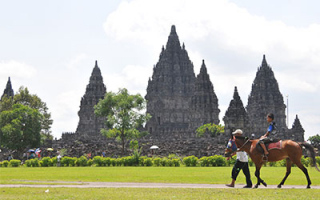National Conservation Policy
The objective of the 2016 Forum was to explore the different national heritage systems within the Asia-Pacific Region, with a view to identifying gaps to be addressed in the future. The Forum involved participants from the heritage authorities of various countries, as well as a number of regional institutions and NGOs.
In many parts of the Asia-Pacific Region, there are long historical traditions of heritage preservation and conservation. Today these traditional practices continue, yet the region is exceptionally diverse in its formal systems for heritage. The region includes countries in post-colonial contexts, some of which continue to use colonial frameworks. Very few countries have a ‘National Conservation Policy,’ and others are currently developing new conservation mechanisms. Regional comparisons are therefore valuable in supporting these processes and identifying improvements.
The specificities of the Asia-Pacific context are dynamic. Heritage practices and outcomes are affected by pressures including rapid transformations, population growth, rural decline, infrastructure needs, mass tourism, environmental pressures and armed conflict. There are complexities arising from migrations and movements of peoples and the creation of new local communities. There are new areas of content that national heritage systems need to incorporate - such as disaster risk management - and new linkages that must be established.
Member States represented
Australia, China, India, Japan, Malaysia, Mongolia, Nepal, New Zealand, Pakistan, Philippines, Republic of Korea, Sri Lanka, Thailand, Viet Nam
Institutions
- Cultural Heritage Administration (CHA) of Korea
- State Administration for Cultural Heritage (China)
- Tsinghua University

